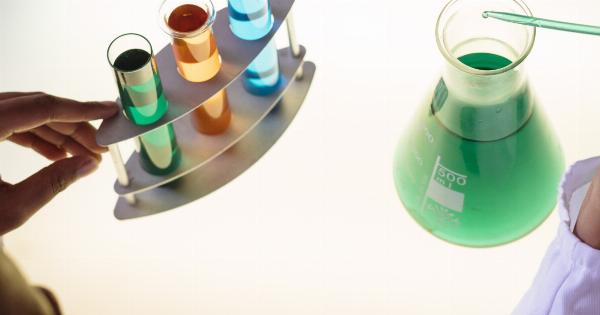The thyroid, a small butterfly-shaped gland located in the front of the neck, plays a crucial role in regulating metabolism, energy production, and various bodily functions.
However, in recent years, there has been growing concern about the impact of environmental factors on thyroid function. Research suggests that exposure to certain substances in the environment can act as a wrecking ball, disrupting the delicate balance of thyroid hormones and potentially leading to a range of health issues.
Understanding Thyroid Function and Hormones
Before delving into the environmental factors that can disrupt thyroid function, it’s important to understand the basics of how the thyroid works. The thyroid gland produces and releases two main hormones: triiodothyronine (T3) and thyroxine (T4).
These hormones regulate metabolism, growth, development, and body temperature.
T3 and T4 production is prompted by the hypothalamus and pituitary gland, which release thyroid-releasing hormone (TRH) and thyroid-stimulating hormone (TSH), respectively.
TRH stimulates the pituitary gland to release TSH, which then signals the thyroid gland to produce T3 and T4. T3 is the more biologically active form of thyroid hormone, while T4 is relatively inactive and is converted to T3 in the body as needed.
Environmental Factors That Interfere with Thyroid Function
Various environmental factors have been identified as potential disruptors of thyroid function. These factors can either directly affect the thyroid gland or interfere with the production, transport, conversion, or regulation of thyroid hormones.
Here are ten significant environmental factors that are known to impact thyroid function:.
1. Heavy Metals
Heavy metals such as mercury, lead, cadmium, and arsenic have been found to disrupt thyroid function. Mercury, for instance, can interfere with the production of thyroid hormones and disrupt their transportation into cells.
Lead exposure has also been associated with decreased thyroid hormone levels and altered thyroid function.
2. Endocrine-Disrupting Chemicals (EDCs)
EDCs are chemicals that interfere with the body’s hormonal systems. Several EDCs, including bisphenol A (BPA), phthalates, and polychlorinated biphenyls (PCBs), have been linked to thyroid dysfunction.
These chemicals can disrupt the synthesis, secretion, and metabolism of thyroid hormones, affecting their overall balance and function.
3. Perchlorate
Perchlorate, a chemical compound commonly found in fertilizers, fireworks, and rocket propellants, can interfere with iodine uptake in the thyroid gland. Iodine is a crucial nutrient required for the production of thyroid hormones.
Perchlorate competes with iodine and inhibits its uptake, leading to decreased thyroid hormone levels and potential disruptions in thyroid function.
4. Flame Retardants
Flame retardants, such as polybrominated diphenyl ethers (PBDEs), are commonly found in furniture, electronics, and textiles.
These compounds have been associated with decreased thyroid hormone levels, alterations in thyroid function, and impaired neurodevelopment in children.
5. Pesticides
Certain pesticides, such as organochlorines and organophosphates, have been linked to thyroid dysfunction. These chemicals can interfere with thyroid hormone production, inhibiting the synthesis of T3 and T4.
Additionally, some pesticides have been found to disrupt the conversion of T4 to T3.
6. Air Pollution
Air pollution, particularly fine particulate matter (PM2.5) and polycyclic aromatic hydrocarbons (PAHs), has been associated with thyroid dysfunction.
Studies have found that exposure to high levels of air pollutants can lead to altered thyroid hormone levels, inflammation in the thyroid gland, and increased risk of thyroid diseases.
7. Radiation
Exposure to ionizing radiation, such as medical radiation (X-rays, CT scans) and nuclear accidents, can damage the thyroid gland and disrupt its function. Radiation exposure increases the risk of developing thyroid nodules, goiter, and thyroid cancer.
The developing thyroid gland in fetuses and children is particularly sensitive to radiation-induced damage.
8. Plastics
Plastics, including those used in food containers and water bottles, may contain chemicals like BPA that can interfere with thyroid function.
BPA has been shown to disrupt thyroid hormone levels, affect thyroid receptor expression, and contribute to various thyroid-related disorders.
9. Medications
Some medications, such as lithium and amiodarone, can disrupt thyroid function. Lithium, commonly used to treat bipolar disorder, can inhibit the release of thyroid hormones and interfere with their action in the body.
Amiodarone, a medication for heart rhythm disorders, contains high levels of iodine and can affect thyroid hormone synthesis.
10. Stress
Chronic stress can also impact thyroid function. Stress hormones like cortisol can interfere with the conversion of T4 to T3, leading to decreased T3 availability and altered thyroid function.
Prolonged stress can disrupt the hypothalamic-pituitary-thyroid axis, affecting the overall balance of thyroid hormones in the body.
The Health Implications of Thyroid Dysfunction
Disruptions in thyroid function can have widespread health implications. Thyroid disorders, such as hypothyroidism (underactive thyroid) and hyperthyroidism (overactive thyroid), can lead to various symptoms and complications.
Common symptoms of thyroid dysfunction include fatigue, weight changes, hair loss, mood swings, temperature sensitivity, and cognitive impairment.
Thyroid dysfunction can also impact reproductive health, cardiovascular function, and bone health. In pregnant women, untreated thyroid disorders can lead to complications, including miscarriage, preterm birth, and developmental issues in the baby.
Children with thyroid dysfunction may experience growth and developmental delays.
Protecting Thyroid Function in an Environmental Minefield
While it may seem daunting to navigate the environmental minefield that disrupts thyroid function, several steps can be taken to protect the health of your thyroid:.
1. Minimize Exposure to Environmental Toxins
Avoid or minimize exposure to heavy metals, EDCs, flame retardants, pesticides, and other chemicals known to disrupt thyroid function. Read labels, choose natural and organic products, and opt for toxin-free alternatives whenever possible.
2. Filter Your Air and Water
Invest in high-quality air purifiers and water filters to reduce your exposure to pollutants, heavy metals, and contaminants that may interfere with thyroid function.
3. Eat a Nutrient-Rich Diet
Consume a well-balanced diet rich in essential nutrients for thyroid health, such as iodine, selenium, zinc, and omega-3 fatty acids. Include foods like seaweed, fish, nuts, and leafy greens in your diet.
4. Choose Thyroid-Supportive Supplements
Consult with a healthcare professional to determine if thyroid-supportive supplements, such as iodine, selenium, and vitamin D, are appropriate for your specific needs.
5. Practice Stress Management
Implement stress-reducing techniques like meditation, yoga, deep breathing exercises, and regular physical activity to help support a healthy thyroid gland.
6. Regularly Check Thyroid Function
Monitor your thyroid function by regularly testing your thyroid hormone levels. If you suspect you may have thyroid issues, consult with a healthcare professional for proper evaluation and management.
By taking proactive steps to reduce exposure to environmental factors and support thyroid health, you can help protect your thyroid from being disrupted by the environmental wrecking ball.





























